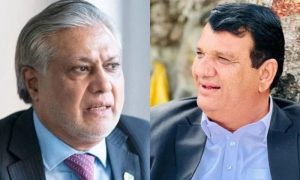DAKAR, Senegal: Senegalese President Macky Sall on Wednesday approved an amnesty bill aimed at bringing about “appeasement” as the country reels from its biggest political crisis in decades.
Senegal’s crisis began with Mr. Sal’s decision to postpone the presidential election that was supposed to be held last Sunday.
The amnesty must first be approved by parliament and could lead to the release of hundreds of people detained during anti-government protests that first began in 2021, including opposition leader Osman Sonko.
The report of the Council of Ministers of Senegal after the meeting on Wednesday, chaired by Sal, stated that the amnesty was proposed by the president in order to create “appeasement, reconciliation and progress in the political atmosphere”.
This bill was part of Mr. Sal’s response to the crisis caused by postponing the elections.
But hopes that Mr Sall would soon set a new election date were dashed after two days of “national dialogue” earlier in the week.
Instead, the presidential palace issued a statement saying Sal would consult the Constitutional Council on the recommendations made during Monday and Tuesday’s talks, in which he said he would retain the president’s powers after his term ends on April 2.
Bashir Diomai Fay, one of the main opposition presidential candidates, “absolutely rejected” the advice, according to his spokesman Amadou Ba.
Hundreds of political leaders, civil society representatives and religious figures gathered for a two-day national dialogue conference in the new town of Diamaniadio, about 30 kilometers (19 miles) from Dakar.
The West African nation, usually a stable democracy, is facing its worst political crisis in decades after Sal abruptly postponed a presidential vote hours before campaigning was scheduled to begin.
Sal, who has been in power since 2012, said he canceled the vote due to controversy over the disqualification of potential candidates and concerns about a repeat of the unrest in 2021 and 2023.
Sal said last week that he would “immediately” set a date for new elections if there was a “consensus”.
Tuesday’s talks resulted in “broad agreement” on a number of points.
The “dialogue” participants have “delivered 100 percent of Macky Sall’s order”, one of the 17 candidates, opponent Thierno Alassane Sall, said on social media.
Mr. Sal’s national dialogue and the recommendations he issued do not provide any clarity on when the elections will be held.
After the election was postponed on February 3, the protests were suppressed, resulting in four deaths and dozens of arrests.
However, opposition parties and civil society tried to mobilize large numbers of people.
The Constitutional Council on February 15 vetoed the postponement, writing that “the President’s mandate… cannot be extended” and that “the date of the election cannot be postponed beyond the term of office”.
But participants in the dialogue are relying on article 36 of the constitution, which says that the president “shall remain in office until his successor is installed”.
“Macky Sall and his accomplices are forgetting just one detail: if all the political parties in Senegal, civil society as a whole, and the official and unsuccessful candidates were to agree, their consensus would not prevail over the constitution,” Thierno Alassane Sall said.























